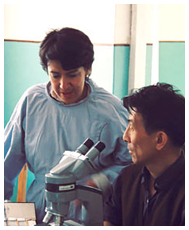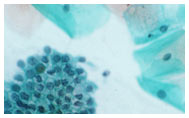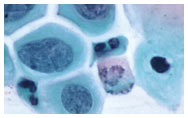"It is really great for a researcher to be able to play a part in developing a world class public health measure…" —Ian Frazer, 2007
Human papillomavirus (HPV) is a common virus easily transmitted during sex. In most women, HPV clears up without treatment and does not cause any lasting problems. For some, the virus can lead to cervical cancer if it is not diagnosed and treated. The U.S. Food and Drug Administration has approved two vaccines against common forms of HPV.
The Advisory Committee on Immunization Practices, a panel convened by the U. S. Department of Health and Human Services, recommends that girls aged eleven and twelve should be vaccinated. This has proven controversial among critics who think this might encourage sexual activity in this age group. It is also too early to predict any long-term health consequences of the vaccines.
Questions remain about providing women around the world with vaccines against HPV. Low-income women who do not have access to medical care are especially at risk for cervical cancer, yet may not be able to afford the vaccine.
 Dr. Ian Frazer, chief contributor to the first cervical cancer vaccine, 2007
Dr. Ian Frazer, chief contributor to the first cervical cancer vaccine, 2007Courtesy Diamatina Institute for Cancer, Immunology, and Metabolic Medicine, University of Queensland
 Dr. Nubia Muñoz, who helped establish the role of human papillomavirus in cervical cancer, circa 2000
Dr. Nubia Muñoz, who helped establish the role of human papillomavirus in cervical cancer, circa 2000Courtesy Nubia Muñoz


